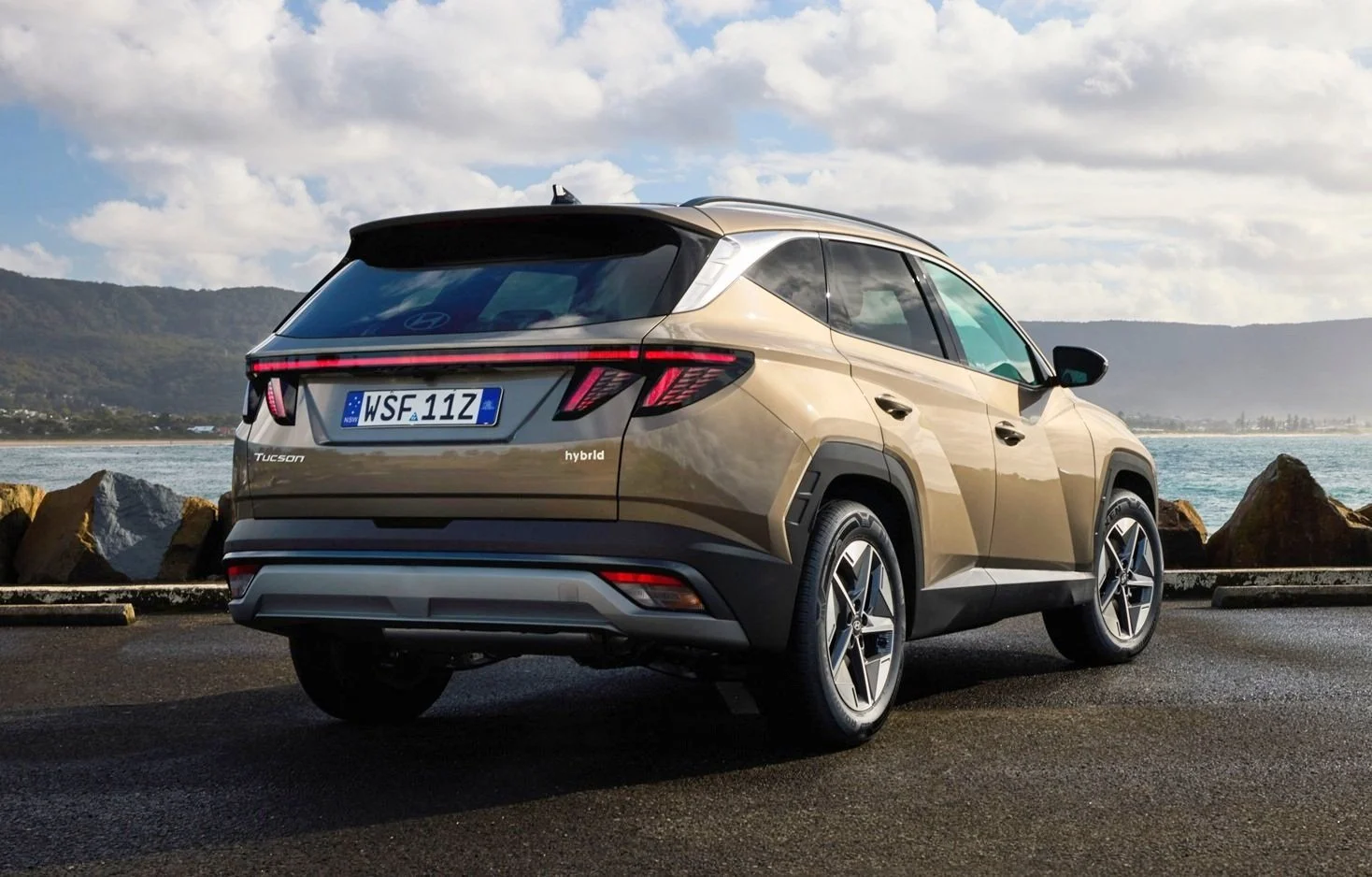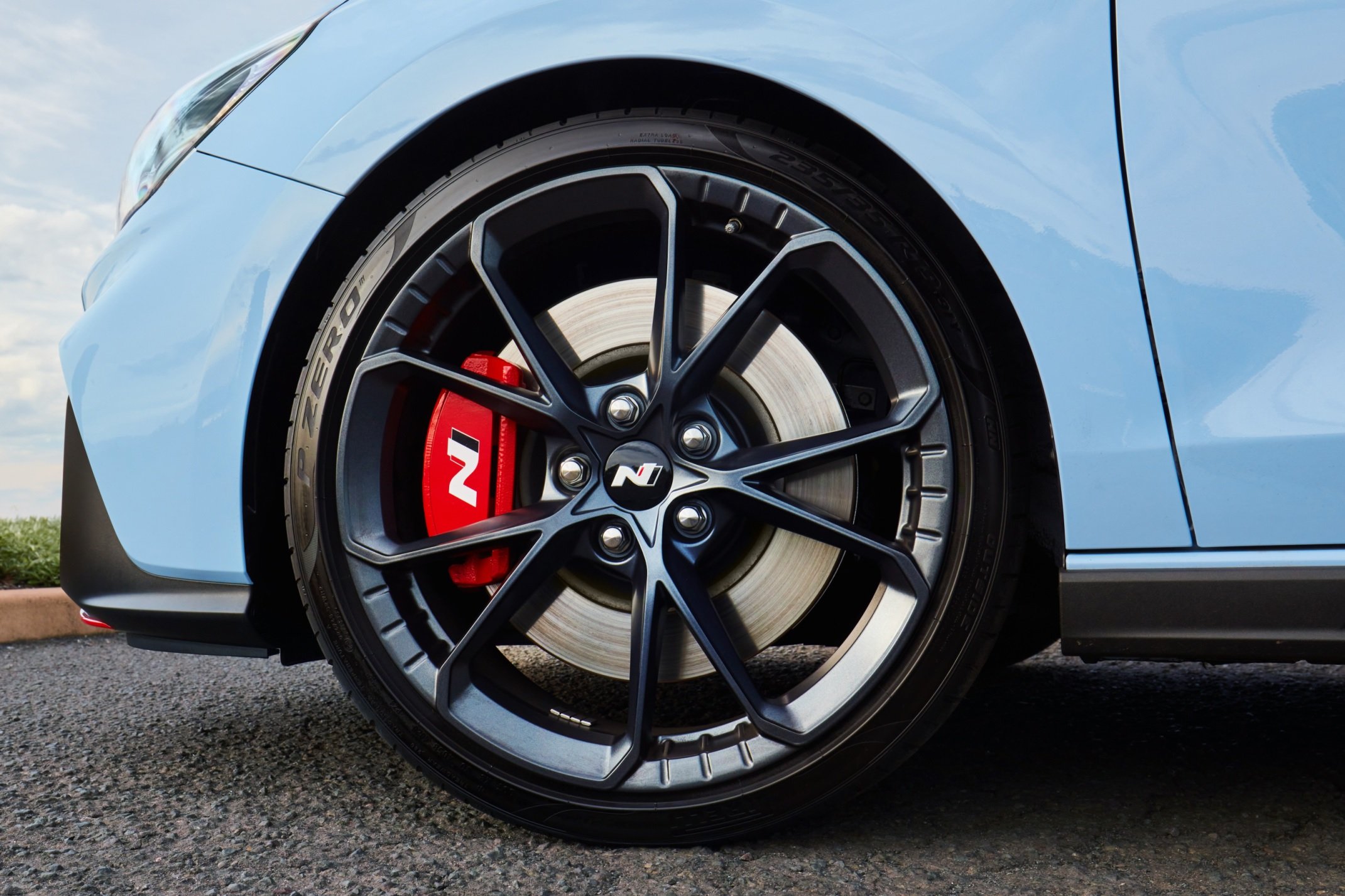Hyundai moves to 7-year warranty (almost): here's the truth
Hyundai Australia is now offering a 7-year warranty to compete with the likes of Kia and the influx of new Chinese brands. But there are conditions you should be aware of before diving in. Here’s what you need to know…
Hyundai Australia is now offering a 7-year warranty on new eligible vehicles sold from September 1, 2025.
Eligible vehicles include everything in Hyundai’s passenger vehicle range in all powertrain configurations including petrol, diesel, hybrid and fully-electric. But there are conditions you need to meet in order to get this extra two years of warranty.
Hyundai has backdated the 7-year warranty to vehicles registered from June 1, 2025. It includes Venue, Kona, Tucson, Santa Fe, Palisade and Staria SUVs and people movers, as well as i20 and i30 hatch, sedan and N performance variants.
It also includes the Inster, Ioniq 5 and 6, and the Kona Electric. However, the all-electric models maintain their 8-year/160,000km warranty (whichever comes first) on all “high voltage” traction batteries.
The primary vehicle ineligible for this 7-year conditional warranty is the Staria-Load light commercial van which retains it standard 5-year/160,000km warranty (whichever occurs first). Other vehicles used for “commercial applications” are ineligible for the 7-year warranty as well. This includes rideshare and taxi services, limousine services, and hire vehicles.
The 7-year warranty also includes items Hyundai suggests many carmakers exclude from their warranty policies such as paint durability, corrosion and multimedia systems, which is a distinct advantage over other brands.
STRINGS ATTACHED
Hyundai Australia says the conditions you need to meet in order to be eligible for the 7-year warranty involve having the vehicle serviced at any authorised Hyundai dealer.
If you choose to service your vehicle outside of the Hyundai dealer network, such as at your local indepndent mechanic, this will make you exempt from the 7-year warranty and revert you to the standard 5-year warranty.
You must also maintain the vehicle’s stipulated servicing schedule, adhering to whichever comes first: time or odometre reading. Meaning, you cannot miss any servicing requirements because that would be considered abuse - which is entirely fair because failing to adequately service the vehicle as required can legitimiately damage the powertrain.
WARRANTY VS CONSUMER LAW
What you need to be aware of as a consumer is that warranties are largely used by carmakers as a marketing tool to lure you to buy with them - and that’s okay, they’re allowed to sell cars. This 7-year warranty is a carrot and you are the donkey.
But what they cannot do is negate your consumer rights in the event of a minor or major failure.
When you're actually face-to-face with a carmaker (or indeed their “authorised” dealer) concerning a quality or reliability issue with your vehicle, you have to remember that this has nothing to do with the warranty.
In Australia, we've got this thing called Australian consumer law and it's been in place since 2011. Australian Consumer Law and the entitlements you get cannot be eroded or leaveraged by your warranty. This applies to anything you buy in Australia.
Everything you buy must be reasonably durable under Australian Consumer Law. They need to meet the durability expectations of a reasonable consumer - regardless of what the carmaker’s warranty promises you.
If your car fails to meet the durability expectations of a reasonable consumer, who’s had it serviced perfectly and treated it in a regular, normal way, the carmaker (and their “authorised” representative dealer i.e. the retailer) is obliged to offer you a remedy. Just like if you walk into JB Hi-Fi with a laptop that doesn’t turn on, or if you return to Officeworks with a printer that doesn’t print.
If the problem with your vehicle is small, they can fix it and it's their perogative. But if it's a major problem, such as something they cannot repair, or if the problem persists after multiple attempts, or if they simply cannot diagnose the problem after a protracted time period, that constitutes a major failure under the law.
At this point they're legally obliged to offer you a remedy, which is either a refund in full or a replacement vehicle, and that's at your discretion. This is a legal entitlement in this country.
But of course, this doesn’t apply if you have failed to service the vehicle correctly, on time or at the required distance (whichever comes first), or if you simply drive the vehicle in a manner it’s not designed for, or if you’ve modified the vehicle (and they can spuriously connect the mod to the failure).
You are also allowed to service the vehicle with a qualified independent mechanic using quality aftermarket parts - and the carmaker cannot deny your consumer rights in the event of a major or minor failure. But they will also be allowed to deny any warranty claim you might make.
I'll help you save thousands on a new Hyundai
Just fill in this form.
No more car dealership rip-offs.
Greater transparency.
Less stress.
OTHER CONDITIONAL WARRANTIES
Mitsubishi has a conditional 10-year warranty that defaults to 5 years if you don’t service with the dealer network, up to 200,000km.
Nissan has the same although its 10-year warranty defaults to 5 if you service independently, but it expires at 300,000km.
MG also does a 10-year/250,000km conditional warranty for servicing at the dealer.
The reason you want long warranty and a brand that honours it is because the process of having to rely on consumer law is, potentially, extremely onerous. Having to find and hire solicitors, having to collate written accounts, go through arbitration, the stress and financial burden is often overwhelming and the amount of time you lose in these processes is horrendous.
So when it comes to warranty, you absolutely want to know what exactly you get with your next new car because being able to walk up to the service counter and make a warranty claim (which is essentially a contractual promise) is much easier than sending lawyers in to do battle.
But there are carmakers and their dealer middlemen who like to either try to subvert consumer law by hoping you are ignorant, atempt to charge you dubious diagnostic fees for problems that might seem obvious, or may try to find extremely thin arguments as grounds to deny your warranty claim.
Toyota did this with its faulty diesel particulate filters in 2.8-litre diesel engines in Hilux, Fortuner and Prado. Ford did their best to avoid service department scrutiny over the PowerShift dual-clutch transmission in Kuga and Focus. And of course there was Nissan which denied there was any reason their Leaf EV batteries were poorly designed and failed to meet expectations of a reasonable consumer by losing significant range over years of ownership.
In stark contrast there’s been Hyundai which invested heavily into the R&D on the truly game-changing i30 N back in 2016 and even broke the car industry mold by honouring their warranty for non-competitive racetrack use. On a performance car. At a track!
WARRANTY DOES NOT EQUAL CUSTOMER SUPPORT
It’s important you understand the context in which this trend is happening in the car industry. Many brands are new to the market and are trying to win over consumers by implying their a trustworthy, reliable brand by offering generous warranties.
Now, this doesn’t specifically mean all brands doing conditional warranties are dodgy or commercially unstable brands, it’s just that some newcomers need to lure consumers away from the bigger, established brands where people have already had a connection.
For example, Kia was the first brand in Australia to offer a 7-year warranty. It was one of their big milestones and it put the entire car industry on notice in this regard. But Kia Australia followed up with their generous warranty in 2014 by seeking to actually offer good customer support in aftersales.
Plenty of brands that eventualy moved from 3 to 5-year warranties did not back up their warranties with good customer support, such as Volkswagen, Jeep, Nissan and Mercedes-Benz. Remember Holden’s promise to customers that it would absolutely be there to support its last customers in their final months? Today, they’re delivering virtually nothing.
There’s been an influx of brands recently to the Australian market. Jaecoo, part of the Chery/Omoda group, offered an 8-year warranty at launch, GWM offers 7 years, Geely, Deepal, Chery, JAC and Leepmotor all offer 7 years.
But the warranty has nothing to do with that brand’s committment to quality, reliability, customer care and their general corporate conduct.
It also needs to be highilighted that there are brands that like to see what they can get away with in terms of warranty claims and you being in need of technical support for a problem.
Then there are brands that actively seek to remedy your issues and generally don’t deliberately go out of their way to make the process hard. Hyundai is the latter, which is why their reputation is so much better in the consumer reputation domain than, say, Jeep, or Land Rover, or Volkswagen.
Warranty does not equal customer support, so buy from a brand with a good reputation and be wary of new brands offering you sweetners like extensive warranties that give you no reassurances they have any intention of sticking around commercially, nor if they will indeed actually help you with problems that arise with your vehicle. BYD is a good example of the latter - corporate conduct is what matters - not big warranty periods.
THEIR MISSION
The real objective here is not to offer some consumer-centric warranty deal for you, it’s about increasing the revenue coming into the servicing department.
Dealers and carmakers hate independent mechnics, even though the existing dealer networks simply could not handle the number of cars on the road that might be serviced at an authorised dealer.
Not to mention independent mechanics are often more technically competent and generally have superior experience to the dealer service department.
Carmakers and dealers are in the business to make money, and sure, so are independent mechanics, but it’s important here that you don’t get sucked into the carmaker rehetoric, regardless of which brand.
CONCLUSION
It’s inherently your decision how to service your new Hyundai or any other brand’s vehicle you buy and there will be relevant warranties for whichever you buy.
But as long as you’re aware of how the consumer law actually works for you and how it relates to carmaker warranties, then if nothing else you’re making an informed purchasing decision and in the unlikely event something does go wrong - you know what you’re entittled to.
Don’t let carmakers or any dealership undermine or circumnavigate your consumer rights either, because the fewer people they can swindle the better for everyone else. Not to mention, keeping your warranty intact is also a much smoother process to seeking a remedy to a problem.
Having to weild the Consumer Law stick in the dealership’s service department - or worse: in court - is a highly laborious course to take on the road to an outcome that might cost less than solicitors-at-dawn. And in that case, dealers and carmakers always have more resources than you, generally speaking.
So speak up and assert your consumer rights when it comes to warranty claims and seeking remedies, but ultimately make sure you ahdere to the scheduled servicing intervals (in the event you do chooce to go for the extended warranty) so that you get the full 7-year warranty on your next new Hyundai.









